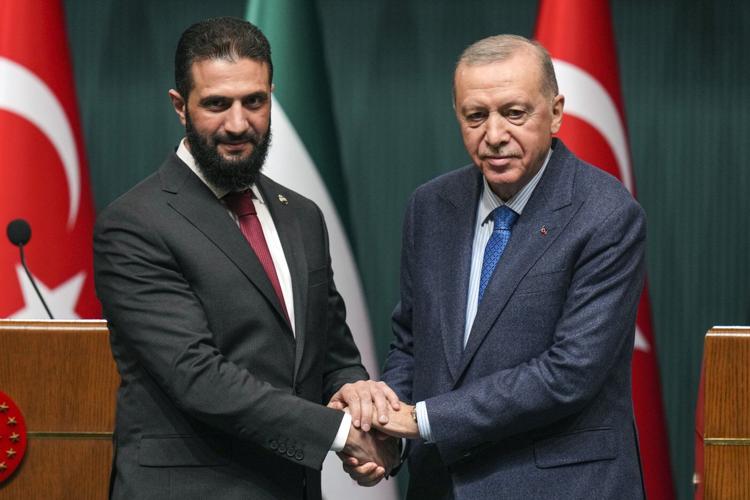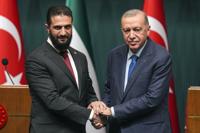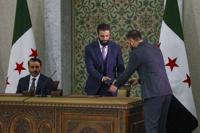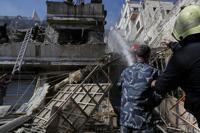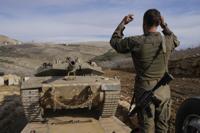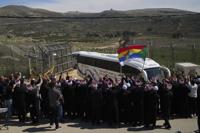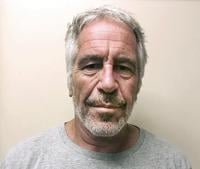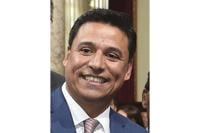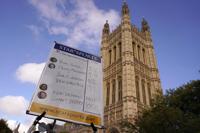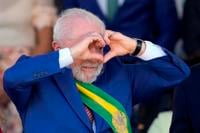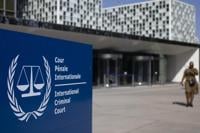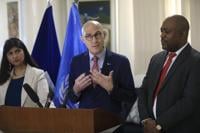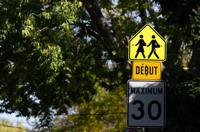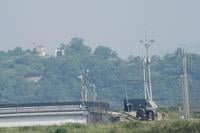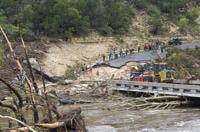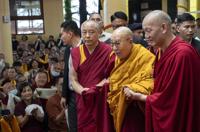ANKARA, Turkey (AP) — The fall of Syrian President Bashar Assad's government has aggravated already tense relations between Turkey and Israel, with their conflicting interests in Syria pushing the relationship toward a possible collision course.
Turkey, which long backed groups opposed to Assad, has emerged as a key player in Syria and is advocating for a stable and united Syria, in which a central government maintains authority over the whole country.
It welcomed a that Syria’s new interim government signed this week with the Kurdish-led Syrian Democratic Forces, or SDF, to integrate with the Syrian government and army.
Israel, on the other hand, remains deeply suspicious of Syria’s interim president, Ahmad al-Sharaa, pointing to his roots in al-Qaida. It's also wary of Turkey’s influence over Damascus and appears to want to see Syria remain fragmented after the country under Assad was turned into a staging ground for its archenemy, Iran, and Tehran's proxies.
“Syria has become a theater for proxy warfare between Turkey and Israel, which clearly see each other as regional competitors,” said Asli Aydintasbas, of the Washington-based Brookings Institute.
“This is a very dangerous dynamic because in all different aspects of Syria’s transition, there is a clash of Turkish and Israeli positions.”
Following Assad’s fall, Israel seized territory in southern Syria, which Israeli officials said was aimed at keeping hostile groups . The new Syrian government and the United Nations have said Israel's incursions violate a 1974 ceasefire agreement between the two countries and have called for Israel to withdraw. Israel has also conducted airstrikes targeting military assets left behind by Assad’s forces and has expressed plans to maintain a long-term presence in the region.
Analysts say Israel is concerned over the possibility of Turkey expanding its military presence inside Syria. Since 2016, Turkey has launched operations in northern Syria to push back Syrian Kurdish militias linked to the banned Kurdistan Workers’ Party, or PKK, and maintains influence in the north of the country through military bases and alliances with groups that opposed Assad.
Turkish defense officials have said Turkey and Syria are now cooperating to strengthen the country’s defense and security, and that a military delegation will visit Syria next week.
Nimrod Goren, president of the Mitvim Institute, an Israeli foreign policy think tank, said that unlike Turkey, which supports a strong, centralized and stable Syria, Israel at the moment appears to prefer Syria fragmented, with the belief that could better bolster Israel's security.
He said Israel is concerned about al-Sharaa and his Islamist ties, and fears that his consolidated strength could pose what Israel has called a “jihadist threat” along its northern border.
Israeli officials say they will not tolerate a Syrian military presence south of Damascus and have threatened to invade a Damascus suburb in defense of members of the Druze minority sect, who live in both Israel and Syria, after short-lived clashes broke out between the new Syrian security forces and Druze armed factions. The distance from Damascus to the Israeli-controlled Golan Heights is about 60 kilometers (37 miles.)
Turkey and Israel once were close allies, but the relationship has been marked by deep tensions under Turkish President Recep Tayyip Erdogan’s more than two-decade rule, despite brief periods of reconciliation. Erdogan is an outspoken critic of Israel’s policies toward the Palestinians, while Israel has been angered by Erdogan’s support for the Hamas militant group, which Israel considers to be a terrorist group.
Following the war in Gaza, Turkey strongly denounced Israel’s military actions, announced it was cutting trade ties with Israel, and joined a genocide case South Africa brought against Israel at the U.N. International Court of Justice.
Aydintasbas said Turkish authorities are now increasingly concerned that Israel is “supportive of autonomy demands from Kurds, the Druze and Alawites.”
Erdogan issued a thinly veiled threat against Israel last week, saying: “Those who seek to provoke ethnic and religious (divisions) in Syria to exploit instability in the country should know that they will not be able to achieve their goals.”
Last week, factions allied with the new Syrian government — allegedly including some backed by Turkey — launched on members of Assad's Alawite minority sect after pro-Assad groups attacked government security forces on Syria's coast. Monitoring groups said hundreds of civilians were killed.
Erdogan strongly condemned the violence and suggested the attacks were aimed at “Syria’s territorial integrity and social stability.”
Israel’s deputy foreign minister, Sharren Haskel, said the deadly sectarian violence amounted to “ethnic cleansing” by Islamist groups led by “a jihadist Islamist terror group that took Damascus by force and was supported by Turkey."
Israel, Haskel added, was working to prevent a threat along its border from Syria’s new “jihadist regime.”
Israel’s involvement in Syria is deepening, with the country pledging protection and economic aid to the Druze community in southern Syria at a time of heightened sectarian tensions.
The Druze, a small religious sect, are caught between Syria’s new Islamist-led government in Damascus and Israel, which many Syrians view as a hostile neighbor leveraging the Druze’s plight to justify its intervention in the region. Israel says it sent food aid trucks to the Druze in southern Syria and is allowing some Syrian Druze part of the Golan Heights to work.
Al-Sharaa was somewhat conciliatory toward Israel in his early statements, saying that he didn’t seek a conflict. But his language has become stronger. In a speech at a recent Arab League emergency meeting in Cairo, he said that Israel’s “aggressive expansion is not only a violation of Syrian sovereignty, but a direct threat to security and peace in the entire region.”
The Brookings Institute's Aydintasbas said the escalating tensions are cause for serious concern.
“Before we used to have Israel and Turkey occasionally engage in spats, but be able to decouple their security relationship from everything else,” Aydintasbas said. “But right now, they are actively trying to undermine each other. The question is, do these countries know each other’s red lines?”
A report from the Institute for ��ɫtv Security Studies, a think tank led by a former Israeli military intelligence chief, suggested that Israel could benefit from engaging with Turkey, the one regional power with considerable influence over Syria’s leadership, to reduce the risk of military conflict between Israel and Syria.
__
Hazboun reported from Jerusalem. Tia Goldenberg contributed from Jerusalem.

